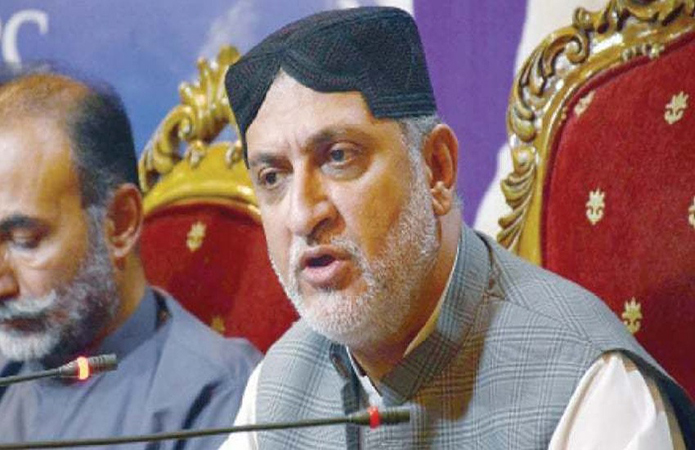 In a surprising turn of events, Sanam Javed, the Pakistan Tehreek-e-Insaf (PTI) nominee, decided to withdraw from the electoral race in the NA-119 constituency on Monday.
In a surprising turn of events, Sanam Javed, the Pakistan Tehreek-e-Insaf (PTI) nominee, decided to withdraw from the electoral race in the NA-119 constituency on Monday.
The confirmation of her decision came from her sister, Falak Javed, who shared the news on the social media platform X, formerly Twitter.
Sanam was set to compete against Maryam Nawaz Sharif in NA-119, where the energetic election campaign led by the PML-N leader has heightened the political atmosphere of the constituency.
 Sanam’s withdrawal coincides with unforeseen developments related to her legal circumstances.
Sanam’s withdrawal coincides with unforeseen developments related to her legal circumstances.
The PTI leader was arrested in connection with a terrorism case filed at the Shadman Police Station shortly after securing bail from an anti-terrorism court for her alleged participation in the violence during a police operation in Lahore’s Zaman Park, the neighborhood that houses the residence of the PTI founder.
Separately, the Supreme Court on Monday allowed Balochistan National Party- Mengal (BNP-M) President Sardar Akhtar Mengal to contest the February 8 general elections from Quetta’s constituency of NA- 264.
A three-member bench of the apex court headed by Chief Justice of Pakistan (CJP) Qazi Faez Isa threw out a plea filed against the acceptance of Mengal’s nomination papers by Yasir Ahmad – one of his contenders in the constituency – and gave a clean chit to the BNP-M chief to contest the upcoming polls.
Last month, Mengal’s nomination papers were rejected by a Returning Officer (RO) in Khuzdar in connection with his alleged offshore company. The BNP-M leader, however, termed the RO’s decision a “well-planned conspiracy.”
Meanwhile, the Mengal challenged the RO’s decision before the election tribunal.
On January 5, the Baloch leader secured relief from the election tribunal as his nomination papers were accepted for the February 8 elections.
One of his contenders, meanwhile, challenged the election tribunal’s decision in this regard in the top court, which announced its verdict in favour of Mengal today.
Earlier, he had announced that his party would go to the “court of the masses” if the nomination papers were not accepted by the election tribunal.
On the other hand, the ECP is set to hold free, fair and peaceful general elections as per the schedule.
Almost 51% of the polling stations have been categorised “sensitive” by the ECP for the upcoming general elections on February 8.
Out of the total 90,675 polling stations, according to the electoral authority, 46,065 have been categorised as sensitive and 18,437 as highly sensitive.
ECP sources said that the total number of sensitive and most sensitive polling stations in Punjab has reached 18,620, and these include 12,580 sensitive and 6,040 most sensitive, whereas as many as 32,324 of the total 50,944 polling stations in the largest province have been declared as normal.
The ECP on Friday issued the final polling scheme for the February 8 general elections, envisaging a total of 90,675 polling stations with 2,76,402 polling booths to be set up across the country for over 128 million voters.
A senior official conceded that over 150,000 fewer polling booths are being established than required under the law, which will make it almost impossible at various places for all present to vote if the turn-out is high.
As per the scheme, in Punjab, 50,944 polling stations will be established for the general elections, followed by 19,006 in Sindh, 15,697 in Khyber Pakhtunkhwa and 5,028 in Balochistan.